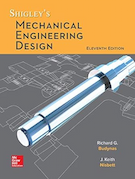The Importance of Continuing Education for Engineers
As an engineer, earning a degree is just the beginning of a long journey towards professional competence and staying ahead of the curve. Continuing education is an essential aspect of this journey, providing engineers with the tools and knowledge necessary to remain at the forefront of their field and stay ahead of changes in technology, regulation, and industry practices. In this article, we will explore the importance of continuing education for engineers and the benefits it provides.

Maintaining Professional Competence
Continuing education helps ensure that engineers remain up to date with the latest industry practices, technologies, and regulatory requirements. This is crucial as the field of engineering is constantly evolving, and engineers must keep pace with the latest advancements. Participating in continuing education programs allows engineers to enhance their existing knowledge, learn new techniques, and stay current with changes in their field. This helps to maintain their professional competence and ensures that they are well-equipped to handle new and emerging challenges.
Keeping Pace with Technological Advancements
Technology is advancing at an unprecedented pace, and staying current with these changes is essential for engineers who want to remain relevant and competitive. For example, advancements in automation, robotics, and artificial intelligence are transforming the engineering landscape and are changing the way that engineers approach their work. Continuing education provides engineers with the opportunity to stay up to date with technological advancements and develop new skills and knowledge in a rapidly changing field.
Staying Ahead of Changes in Regulations and Industry Practices
Engineering practices and regulations are constantly changing, and engineers must stay up to date with these changes to remain compliant and effective in their work. For example, changes in environmental regulations or safety protocols can significantly impact the design and implementation of engineering projects. Continuing education provides engineers with the opportunity to learn about new regulations and industry practices, and to stay current with changes in their field.
Expanding Your Skill Set
Continuing education can help engineers expand their skill set and broaden their knowledge base. By taking courses and attending workshops, they can learn new techniques, explore new areas of expertise, and develop a more well-rounded understanding of their field. This newfound knowledge and skill can lead to increased job satisfaction, improved problem-solving ability, and greater professional confidence.
Improving Career Prospects
By participating in continuing education programs, engineers can demonstrate their commitment to their profession and their willingness to invest in their own professional development. This can help to improve their career prospects and make them more competitive in the job market. Employers often look for candidates who are committed to ongoing education and professional development, and engineers who invest in their education are more likely to be considered for promotions and leadership roles.
Improving Confidence
One of the biggest benefits of continuing education is the impact it has on an engineer’s confidence and self-esteem. By continuously learning and growing, engineers can feel more secure in their abilities and better equipped to tackle new challenges. This increased sense of competence can lead to greater job satisfaction and a more fulfilling career.
Networking Opportunities
Continuing education programs provide engineers with the opportunity to network with other professionals in their field. This can help to build professional relationships and provide opportunities for collaboration and mentorship. Conferences, workshops, and courses provide opportunities to meet and collaborate with other engineers from diverse backgrounds, creating a network of colleagues that can be invaluable in their professional development.
Fulfilling Licensure Requirements
If you have a professional engineering license, you may have to fulfill a continuing education requirement to maintain your license. Many states and professional organizations require that engineers complete a certain number of continuing education hours in order to maintain their license. By participating in continuing education programs, engineers can fulfill these requirements and maintain their license to practice.
PDH Classroom offers a suite of online continuing education courses tailored to engineers. These courses can be used to fulfill PDH credit requirements for maintaining your PE license, or just as a part of staying ahead in your field.
There are many different types of continuing education programs available to engineers, including online courses, workshops, seminars, and conferences. When selecting a continuing education program, it is important to consider factors such as cost, location, and the relevance of the program to your specific area of expertise. We offer a set of online engineering courses that are ideal for engineers looking for technically focused courses to fulfill their PDH requirements or just to stay ahead in their field.
Continuing education is an essential aspect of a professional engineer's journey towards maintaining professional competence and staying ahead of the curve. The benefits of continuing education are numerous, including maintaining professional competence, staying current with technological advancements, staying ahead of changes in regulations and industry practices, expanding their skill set, improving career prospects, networking opportunities, and fulfilling licensure requirements. By investing in their ongoing education, engineers can ensure that they remain competitive and well-equipped to tackle the challenges of their industry.




